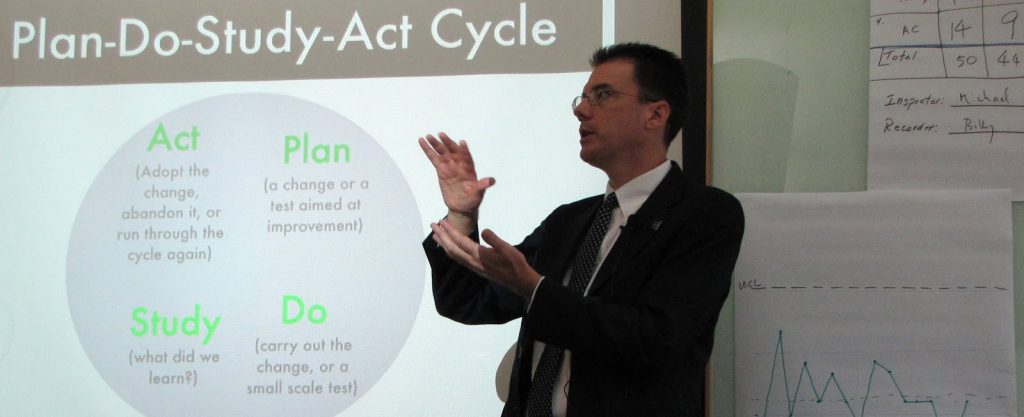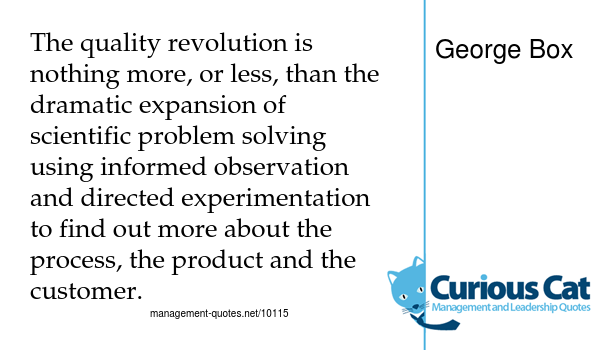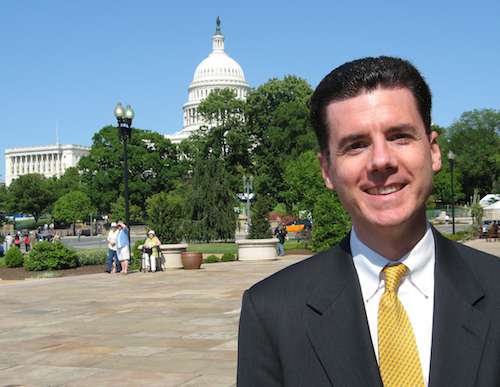John Willis interviewed me for his Profound podcast series, this posts is about part two of the interview (listen to part two of the podcast, John Hunter – Curious Cat). See my post on part one of the interview.

John Hunter presenting at Deming Institute management seminar in Hong Kong
This post provides links to more information on what we discussed in the podcast. Hopefully these links allow you to explore ideas that were mentioned in the podcast that you would like to learn more about.
- Myth: If You Can’t Measure It, You Can’t Manage It
- Don’t Expect Short Quotes to Tell the Whole Story
- How to Manage What You Can’t Measure
- What Does Respect for People Actually Mean?
- Interview of Bill Hunter: Improving Quality and Productivity in Organizations
- Bill Hunter and the Quality Movement (presentation by George Box) – My (John Hunter) start with quality management discussing my father’s impact on those he worked with. – Positivity and Joy in Work – comments from others on working with Bill Hunter
- The Aim Should be the Best Life – Not Work v. Life Balance
- Two New Deadly Diseases
- The Existing Management Conditions Limit How Effective New Strategies Will Be – Building Adoption of Management Improvement Ideas in Your Organization
- Eliminate Sales Commissions: Reject Theory X Management and Embrace Systems Thinking – Why ThoughtWorks Eliminated Sales Commissions – Eliminating Sales Commissions at Air Force One – Righter Incentivization – The System of Profound Knowledge Applied to Sales and Marketing – The Trouble with Incentives: They Work
- Maslow on Dealing with Authoritarians
- Common Cause Variation – Deming on Tampering – Understanding Variation: The Key to Managing Chaos – How to Improve at Understanding Variation and Using Data to Improve – We Need to Understand Variation to Manage Effectively
- Deming and Software Development
- johnhunter.com
Find more interviews of John Hunter.








